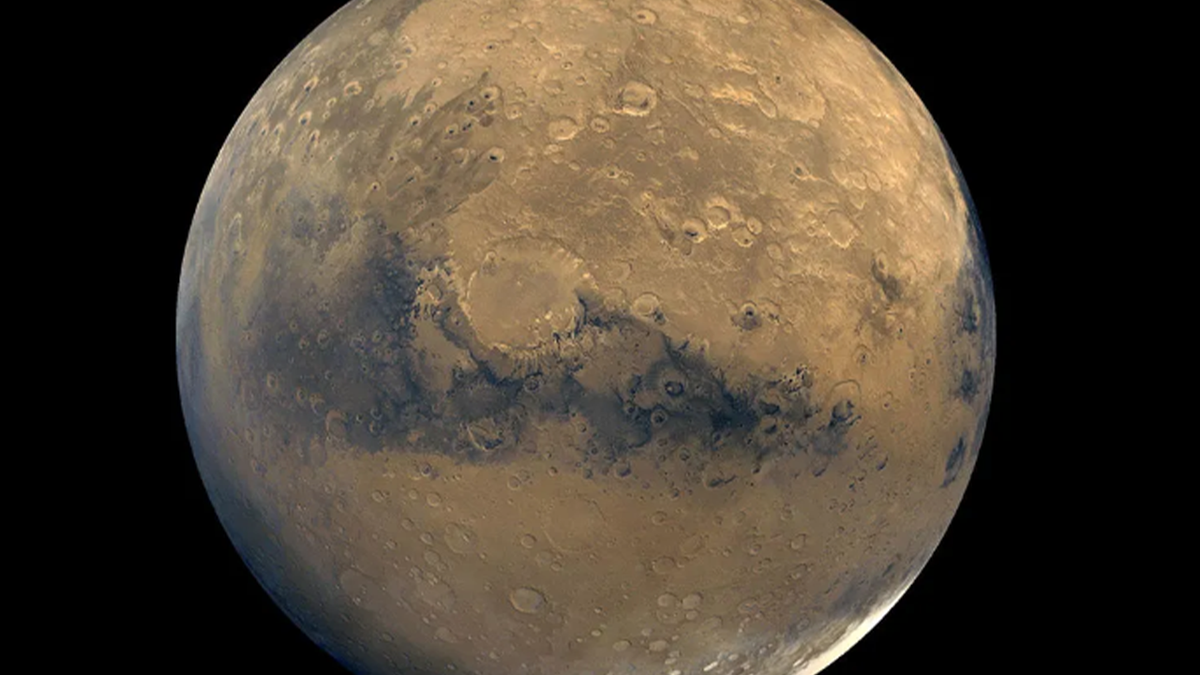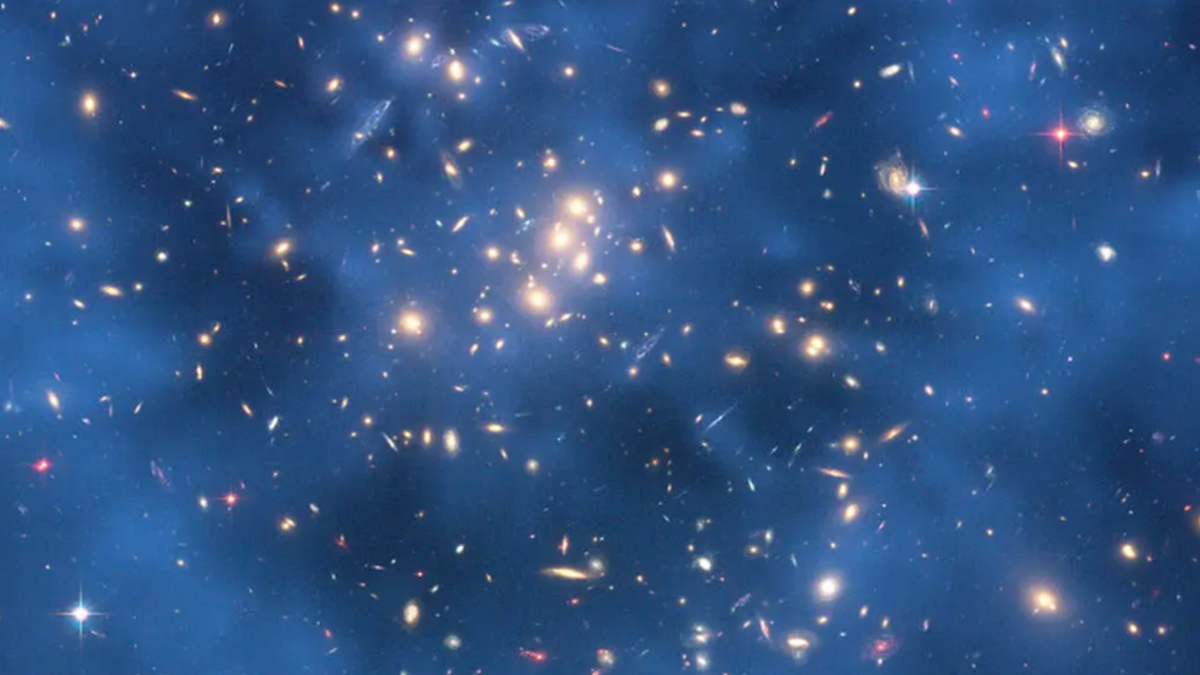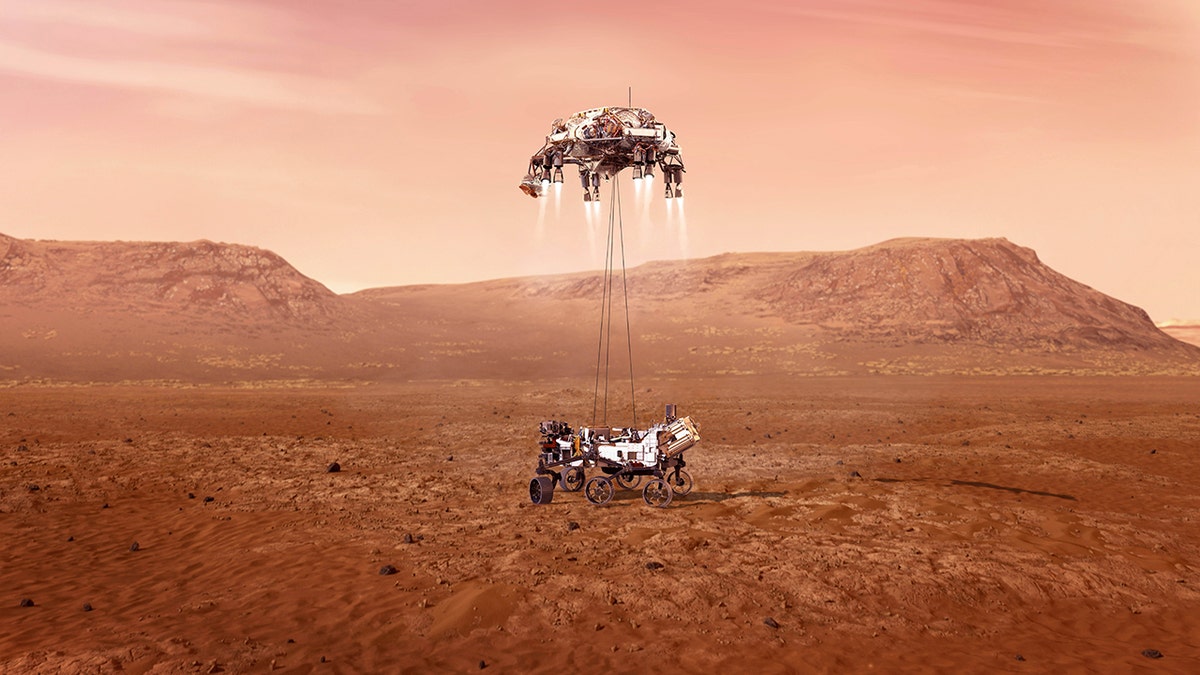A study published last week proposed that dark matter may be responsible for an observable wobble in Mars’ orbit.
The study, published in the peer-reviewed scientific journal Physical Review, postulates the theory that dark matter compromises microscopic, or primordial, black holes.
Unlike astrophysical black holes, these primordial black holes formed when dense pockets of gas collapsed in the seconds after the Big Bang and scattered throughout the universe because of expansion.
Despite being as small as an atom, these primordial black holes would be heavier than thousands of solar masses and constitute dark matter.
AMAZING TIME-LAPSE VIDEO OF PARTIAL LUNAR ECLIPSE CAPTURED IN ALABAMA

A panoramic view of Mars (NASA)
First theorized in the 1930s by Swiss astronomer Fritz Zwicky, dark matter is a form of matter undetectable to the human eye. It does not emit light or energy but makes up roughly a quarter of the universe’s mass. Researchers have proposed its existence based on the gravitational pull on other visible matter.

Though not detectable to the naked eye, dark matter is believed to comprise around a quarter of the universe. (NASA)
The new study, “Close encounters of the primordial kind,” theorizes that dark matter, made up of primordial black holes, is pushing Mars’ orbit slightly off track because of its extreme mass.
The researchers, comprising MIT physicists, backed up their theory with a simulation of Mars’ orbit which aligned with their proposal.
MARS STUDY SUGGESTS OCEAN’S AMOUNT OF WATER COULD BE MILES BENEATH RED PLANET’S SURFACE
The researchers theorized that these primordial black holes would introduce a wobble into Mars’ orbit at least once per decade during zooms through the solar system.

This image made available by NASA shows an illustration of NASA’s Perseverance rover landing safely on Mars. (Xinhua/NASA/JPL-Caltech via Getty Images)
Astronomers can detect such a wobble thanks to advances in telemetry, or measuring the distance between planets.
CLICK HERE TO GET THE FOX NEWS APP
“We’re taking advantage of this highly instrumented region of space to try and look for a small effect,” said co-author and physics professor David Kaiser. “If we see it, that would count as a real reason to keep pursuing this delightful idea that all of dark matter consists of black holes that were spawned in less than a second after the Big Bang and have been streaming around the universe for 14 billion years.”
